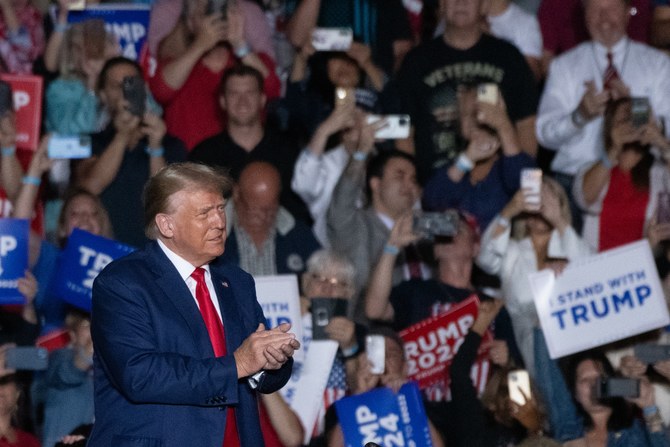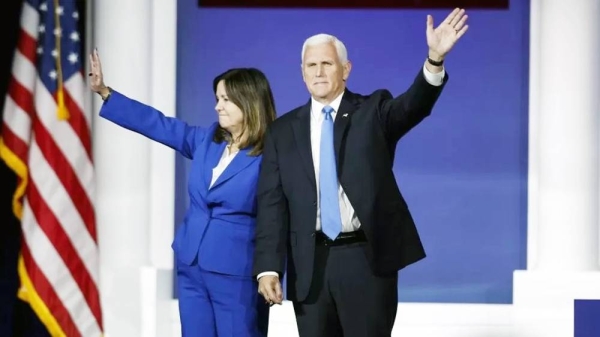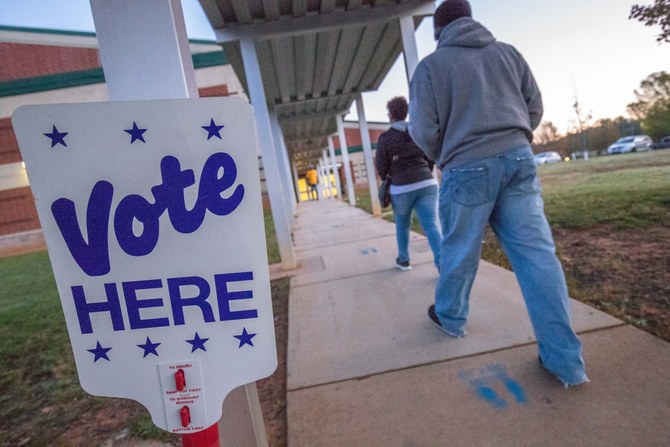
In November 2020, it was not just US Democrats who breathed a big sigh of relief at then-President Donald Trump’s election loss. Many US allies around the world were also hugely relieved by the outcome, hoping that Trump’s political career had come to an end.
Fast forward almost three years, however, and Trump’s 2024 campaign appears strong. Indeed, it even appears to be increasing in momentum as he faces mounting legal peril, including from a new round of indictments last week.
Little wonder that key American allies from Europe to the Asia-Pacific are increasingly concerned Trump could again be elected president, not least given the game-changing geopolitical impact this could have. While most elected officials are unwilling to comment publicly on their fear, others who will never face the ballot box again have spoken out. For example, former UK Prime Minister Tony Blair has called the possibility of Trump winning the presidency again a “disaster,” given the changed international relations of recent years, especially following Russia’s invasion of Ukraine.
To be sure, it is by no means certain that Trump will win the 2024 election. However, such a ballot may be much closer than many anticipate and some commentators, including this writer, have asserted since 2020 that the ex-president is highly likely to become the Republican standard-bearer.
If Trump does become the nominee, as looks increasingly likely, there remains a significant, albeit chilling, possibility he will become only the second person in US history elected to the White House in nonconsecutive terms. The first was Grover Cleveland, who won in 1884 and 1892.
For all the wrong reasons, Trump is a precedent-shattering politician and his chances of becoming the Republican nominee only appear to be increasing with the number of lawsuits and indictments filed against him. This reflects the nature of his voter base, who, for a range of reasons, believe their candidate is the victim of wide-ranging “deep state” conspiracy theories.
Key American allies from Europe to the Asia-Pacific are increasingly concerned Trump could again be elected president
Andrew Hammond
While Trump is now 77, he is about three years younger than incumbent President Joe Biden. So, there are no personal or political blocks that would prevent him running again as long as his health holds up and following his impeachment acquittal in the US Senate. There is also currently no legal barrier to him holding future office.
Moreover, in refusing to concede the 2020 ballot outcome, the billionaire businessman’s game plan for winning power again may well be to try to emulate the approach of Andrew Jackson, a president many have compared him to. In 1824, Jackson came close to winning the presidency, as he won the most electoral votes but not enough for the necessary majority in a field of four candidates. In what Johnson later termed the “corrupt bargain,” the House of Representatives elected John Quincy Adams as president, despite Jackson’s Electoral College advantage. Jackson went on to win the presidency in both 1828 and 1832.
While the circumstances of his loss to Biden are different to those of Jackson in 1824, Trump has sought to nurture a similar sense of grievance over his defeat. And this is despite the overwhelming evidence that points to Biden’s clear 2020 Electoral College win.
Despite Trump’s many controversies, he will be a formidable contender in 2024 should he win the Republican nomination. The appeal of “Trumpism” remains strong among key US groups, as has been evidenced by recent polls.
Trump also has significant advantages over those who are his rivals in seeking the Republican nomination. While the outcome of the party’s 2024 race is still too far away for us to be certain about any predictions, history indicates there are patterns to previous primary contests that point to potential success for Trump.
Despite Trump’s many controversies, he will be a formidable contender in 2024 should he win the Republican nomination
Andrew Hammond
The past few decades of US political history suggest the victors in nomination contests for both major parties frequently lead national polls of party identifiers on the eve of the first presidential nomination ballot in Iowa and/or raise more campaign finance than any other candidate in the 12 months prior to election year. On both these counts, Trump is leading the other Republican candidates, including Florida Gov. Ron DeSantis, South Carolina Sen. Tim Scott, former UN Ambassador Nikki Haley, former Vice President Mike Pence and entrepreneur Vivek Ramaswamy.
From 1980 to 2020, the eventual nominee in about half the Democratic and Republican nomination races contested (that is, in which there was more than one candidate) was the early front-runner by both of these measures, as Trump is now for the Republicans. Moreover, in at least five partial exceptions to this pattern, the eventual presidential nominee led the rest of the field on one of the two measures, including Biden in 2020 and Trump in 2016.
With Trump, the probable Republican nominee for a third successive election, the one factor that still gives certain US allies some comfort is that it is far from certain he would win back the presidency for at least two reasons.
Firstly, while the reelection campaign of Biden (presuming he becomes the Democratic presidential nominee) has key vulnerabilities, he may ultimately become a moderate favorite to win a second term in 2024. This would be especially likely if the US economy avoids recession and enters a new period of faster, more equitable growth.
The second key factor influencing Trump’s prospects of winning the presidential election will be how much, and how quickly, the Republican Party can unite around him given the debate between moderate and centrist Republicans — many of whom are appalled by the ex-president’s behavior — and Trump’s supporters over the party’s future direction. A rancorous, divisive Republican nomination contest, even if Trump ultimately prevails, may only benefit Biden.
Andrew Hammond is an Associate at LSE IDEAS at the London School of Economics.












